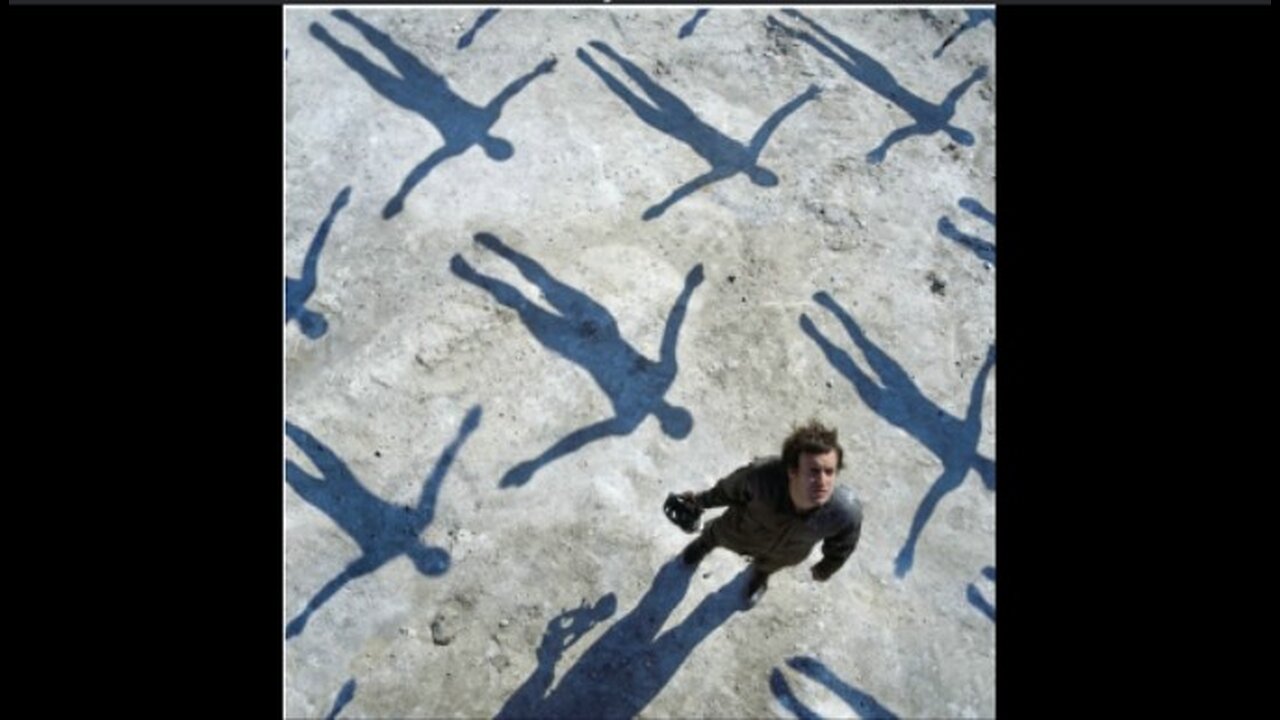Premium Only Content

MUSE with "FURY" from the 2003 album, "ABSOLUTION".
Description
A dark and brooding track. Very disturbing lyrics.
I just want to add my own words here. When people walk around with this kind of vague and empty philosophy in their heads, there is usually no truth in their minds, so they become susceptible to all kinds of evil lies, as is being shown in the lyrics in this song. About a third of the way through this song, we see the damning lyrics, "You waste twenty years and wind up alone demented." And that, I'm afraid is the lot of most people in the world today The Bible has become to them and many others, "a book of myths and fairytales". And ultimately there awaits them a perilous judgement without Christ, who is only the Saviour of His elect people.
Having said all of that, I am still a lover of Hard rock music. This song can be classified either as Progressive Rock, or Alternative Rock and even by a term that is new to me, as "Art" Rock.
Additional information
Matthew Bellamy wished this to be on the album but Christopher Wolstenholme and Dominic Howard voted against it, and so "The Small Print" was put on the album instead. "Fury" was sometimes played live during the latter part of the Origin of Symmetry tour and the Absolution tour, and often during the Black Holes and Revelation tour.
Interpretation one This is one of Muse's songs which indicates a scepticism concerning the ability of religion, ironically indicated by a prayer (presumably to a god) asking that he does not exist, to effect change (cf. "Crying Shame").
Interpretation two This is a statement of an existential despair, where ironically freedom from divine judgement ("no god/ to punish us and make a fuss") would also require the absence of divine blessing and answered prayer ("and we'll pray"). It is a more nuanced understanding of a non-religious life.
The riff bears similarity with the bass guitar part of Rage Against the Machine's "Without a Face".
Starting at around the 3:48 mark of the song where the final chorus is being sung, a ghostly echo of Bellamy singing falsetto can be heard. It can be heard vaguely through good speakers, but sounds a bit clearer through headphones. So far, the only known live performance where he sings the falsetto instead of the final chorus is from the gig in le Zénith de Orléans (15th March 2004) which can be heard by following the media link on the gig info page.
Live
First played in full before the release of Absolution in 2002, "Fury" had started as an instrumental during the Showbiz tour in 2000, and was played occasionally through the Absolution and US Campus Invasion Tours from 2003 to 2005. After being left out of set lists during the first leg of the Black Holes and Revelations tour, "Fury" was played at Perth Supreme Court Gardens (10th November 2007) for the first time in three years and made frequent subsequent appearances throughout the remainder of 2007 and 2008. The song was played at the Zepp Tokyo (13th August 2013) for the first time in five years. The song was the most requested song during the Drones Tour along with Assassin and made rare appearances throughout the tour with the most notable being at Belfast Ulster Hall 2015 (gig) and the Montreux Jazz Festival 2016. For more information on this song please go to: https://www.musewiki.org/Fury_(live)
On Muse, the band:
Muse are an English rock band from Teignmouth, Devon, formed in 1994. The band consists of Matt Bellamy (lead vocals, guitar, keyboards), Chris Wolstenholme (bass guitar, backing vocals), and Dominic Howard (drums, percussion).
Muse released their debut album, Showbiz, in 1999, showcasing Bellamy's falsetto and a melancholic alternative rock style. Their second album, Origin of Symmetry (2001), incorporated wider instrumentation and romantic classical influences and earned them a reputation for energetic live performances. Absolution (2003) saw further classical influence, with strings on tracks such as "Butterflies and Hurricanes", and was the first of seven consecutive UK number-one albums.
Black Holes and Revelations (2006) incorporated electronic and pop elements, displayed in singles such as "Supermassive Black Hole", and brought Muse wider international success. The Resistance (2009) and The 2nd Law (2012) explored themes of government oppression and civil uprising and cemented Muse as one of the world's major stadium acts. Topping the US Billboard 200, their seventh album, Drones (2015), was a concept album about drone warfare and returned to a harder rock sound. Their eighth album, Simulation Theory (2018), prominently featured synthesisers and was influenced by science fiction and the simulation hypothesis. Their ninth album, Will of the People (2022), which combined many genres and themes from their previous albums, was released in August 2022.
Muse have won numerous awards, including two Grammy Awards, two Brit Awards, five MTV Europe Music Awards and eight NME Awards. In 2012, they received the Ivor Novello Award for International Achievement from the British Academy of Songwriters, Composers and Authors. As of October 2022, they had sold more than 30 million albums worldwide.
History
Early years (1994–1997)
The members of Muse played in separate school bands during their time at Teignmouth Community College in the early 1990s. Guitarist Matt Bellamy successfully auditioned for drummer Dominic Howard's band, Carnage Mayhem, becoming its singer and songwriter. They renamed the band Gothic Plague. They asked Chris Wolstenholme – at that time the drummer for Fixed Penalty – to join as bassist; he agreed and took up bass lessons. The band was renamed Rocket Baby Dolls and adopted a goth-glam image. Around this time, they received a £150 grant from the Prince's Trust for equipment.
In 1994, Rocket Baby Dolls won a local battle of the bands, smashing their equipment in the process. Bellamy said, "It was supposed to be a protest, a statement, so, when we actually won, it was a real shock, a massive shock. After that, we started taking ourselves seriously." The band quit their jobs, changed their name to Muse, and moved away from Teignmouth. The band liked that the new name was short and thought that it looked good on a poster.[8] According to journalist Mark Beaumont, the band wanted the name to reflect "the sense Matt had that he had somehow 'summoned up' this band, the way mediums could summon up inspirational spirits at times of emotional need".
For more information on MUSE, the Band, please go to their Wikipedia page @ https://en.wikipedia.org/wiki/Muse_(band)
-
 11:36
11:36
tactical_rifleman
11 days agoNever Run Out Of Ammo | Magazine Pez Dispenser | Tactical Rifleman
28.3K -
 26:11
26:11
Upper Echelon Gamers
15 hours ago $0.50 earned"Her" Wasn't Fiction - Its Real
2.64K1 -
 3:11
3:11
Canadian Crooner
2 years agoPat Coolen | It's Beginning to Look A Lot Like Christmas
54.8K17 -
 5:22
5:22
DropItLikeItsScott
1 day ago $1.76 earnedThe GLOCK Killer? Shadow Systems XR920 / Would You Choose It?
10.7K7 -
 LIVE
LIVE
BEK TV
23 hours agoTrent Loos in the Morning - 12/01/2025
315 watching -
 LIVE
LIVE
The Bubba Army
22 hours agoDIDDY'S NEW DOC EXPOSED! - Bubba the Love Sponge® Show | 12/02/25
1,684 watching -
 40:10
40:10
ZeeeMedia
14 hours agoFDA Memo: "Covid-19 Vaccines Have Killed American Children" | Daily Pulse Ep 153
12.4K34 -
 LIVE
LIVE
Pickleball Now
6 hours agoLive: IPBL 2025 Day 2 | High-Intensity Matchups Continue in the Indian Pickleball League
144 watching -
 15:11
15:11
itsSeanDaniel
1 day agoAngry Liberal Defends ILLEGALS, Then Gets CALLED OUT For It
54.8K26 -
 10:32
10:32
Actual Justice Warrior
2 days agoColorado School FORCES Girl Into Bed With Trans
23K28